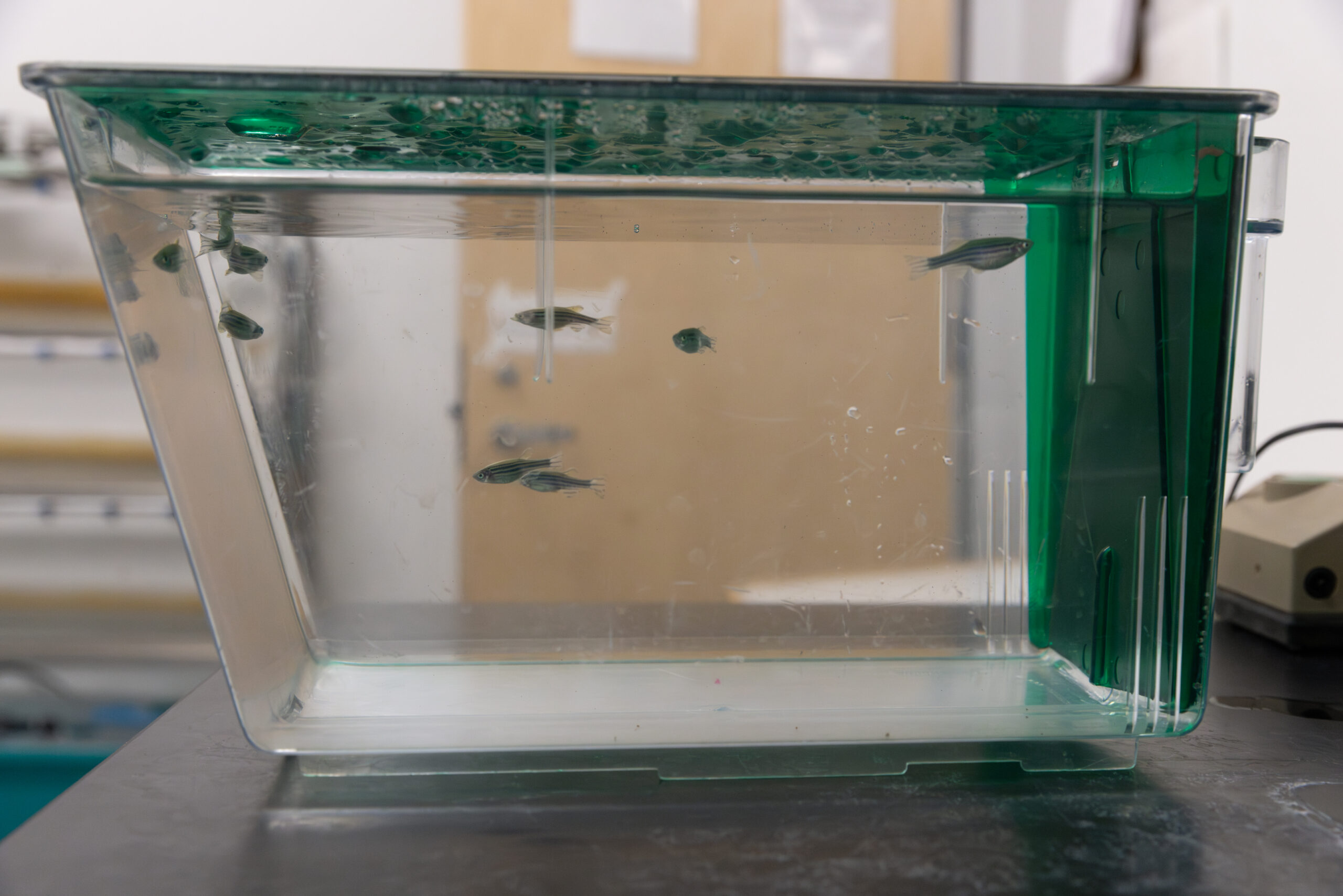PFAS chemicals have been linked to a range of negative health impacts, like liver damage, decreased birth weight and some cancers.
A researcher at the University of Wisconsin-La Crosse is now working to measure how these chemicals are impacting the health of fish populations, informing potential groundwater policies and future study of human health.
Biology professor Tisha King-Heiden launched the two-year study this summer with funding from Wisconsin Sea Grant from the National Oceanic and Atmospheric Administration. King-Heiden said PFAS levels have been studied in adult fish, but little is known about how the chemicals impact early growth.
Stay informed on the latest news
Sign up for WPR’s email newsletter.
“These early stages of development are really crucial in terms of a population being able to sustain itself,” she said. “The number that make it through that stage of development is really crucial, so that enough survive to be adults to keep the population going.”
The research will measure impacts to the fish’s cardiovascular health, immune system and reproduction. King-Heiden said the processes that regulate these systems are the same in humans, pointing to potential public health applications from the study’s findings.
“It’s not a direct link (between fish and humans),’” she said. “But it is predictive, and it can tell us other impacts.”

Study of fish could help inform natural resources, health policy
In a lab at UWL on Wednesday, King-Heiden pointed out a tiny fish darting around under a high-speed camera. Once the 4 millimeter zebrafish larvae stills, a graduate student startles the fish and records its response, a reflex that King-Heiden said is critical to survival in the wild.
“If this exposure to PFAS would affect that response, they would be less likely to be able to evade a predator and be more likely to get eaten,” she said. “It’s one of those sub-lethal effects that can be very important for sustaining that wild fish population.”
The research will also compare whether different species of fish embryos absorb different amounts of the chemicals, including popular native species like bluegill and walleye.
As more Wisconsin communities find high levels of PFAS in their water, King-Heiden said knowing what the chemicals mean for wild fish can help protect a natural resource that is important both economically and culturally.
“A lot of people in this community, for example, they are fishing to feed their families,” said King-Heiden. “So we want to make sure that we protect that part of our environment, which has such a deep connection to us as people.”
For King-Heiden, the work hits especially close to home. She lives in the Town of Campbell, a small community near La Crosse where private wells have been unusable for years because of high levels of PFAS contamination.
She said the cost of PFAS research has been prohibitive in the past, with each water sample costing the lab several hundred dollars to run. But she said the continued public attention on the chemicals has opened up opportunities for further study.
“The research has exploded, and we’re learning more and more about the subtle effects that these chemicals can have,” she said.
King-Heiden said she plans to share her findings with both the state Department of Natural Resources and the state Department of Health Services with the hope that they will help inform a future PFAS policy for groundwater.
Wisconsin Public Radio, © Copyright 2024, Board of Regents of the University of Wisconsin System and Wisconsin Educational Communications Board.
"fish" - Google News
July 16, 2024 at 05:00PM
https://ift.tt/3rJMYgB
Study at UW-La Crosse explores PFAS impact on survival of fish - WPR
"fish" - Google News
https://ift.tt/GE5QXyv
https://ift.tt/nfQcJGj
Bagikan Berita Ini














0 Response to "Study at UW-La Crosse explores PFAS impact on survival of fish - WPR"
Post a Comment